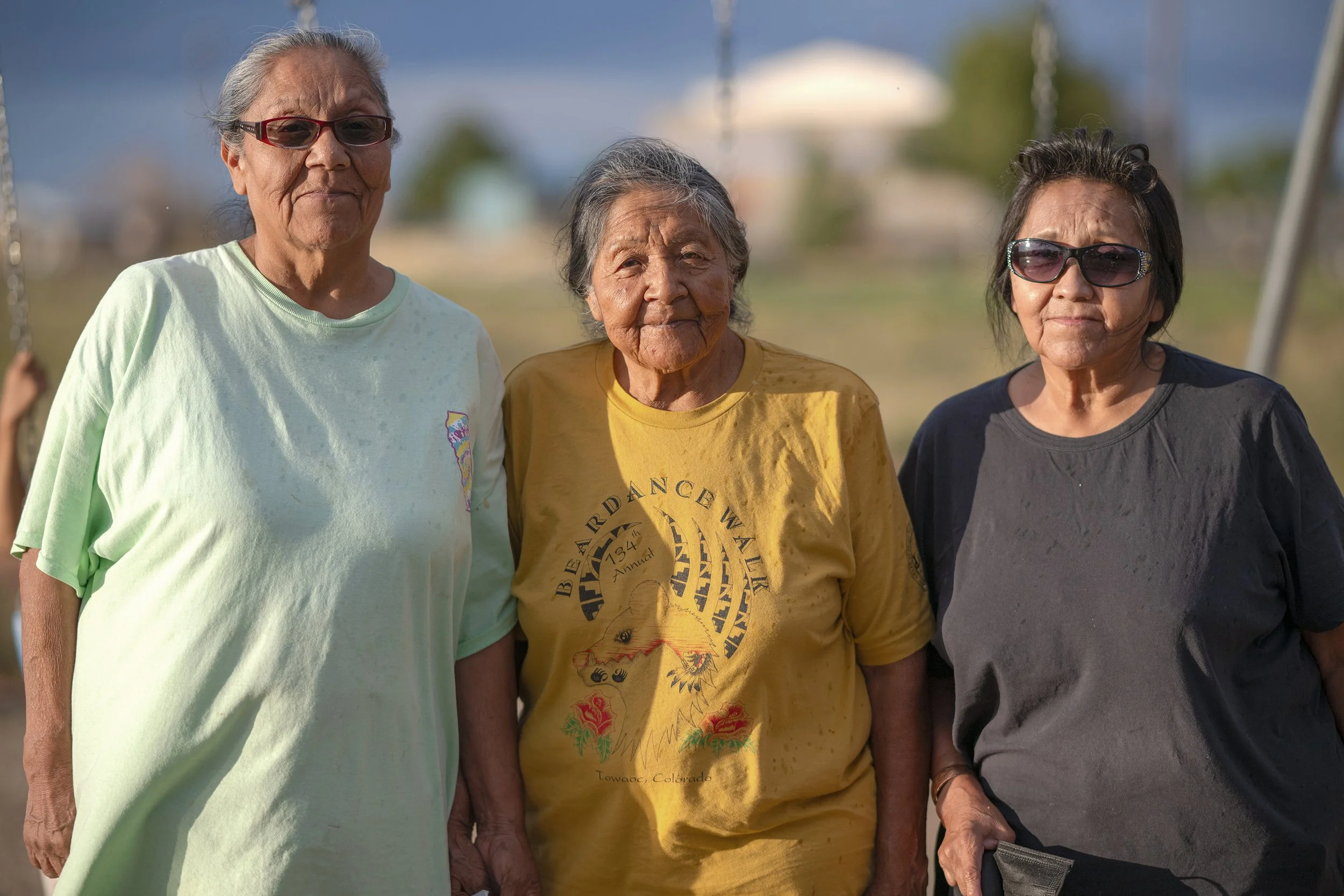Hello! We are the Nuchu Diabetes Program.
My name is Rita King. I have been the Ute Mountain Ute Tribe’s Diabetes Program Coordinator for 27 years. Our Diabetes Program has been continuously running, expanding and enhancing services since June 1, 1995.
The Ute Mountain Ute Tribe is located
in a geographically isolated area near the Four Corners region of the United States. The reservation consists of nearly 600,000 acres of land in Colorado, New Mexico and Utah. Most residents live in Towaoc, Colorado where the tribal headquarters are established with a small population in White Mesa, Utah. Both communities are at least 75 or more miles from specialty medicine. Albuquerque is a 4 hour drive away. Denver is 8-9 hours away from Towaoc, and Salt Lake City is 6 hours from White Mesa, Utah.
We have a high prevalence
of obesity, substance abuse, alcoholism, and pre-diabetes, as well as cancer, heart disease, renal failure, foot amputations, glaucoma, and liver disease. The average live span of a member of the Ute Mountain Ute Tribe is only 55 in comparison to the national average of 76.
In August 2022,
the Diabetes Program began working with the Moguan Behavioral Health Center to coordinate services that will include behavioral health and nutrition education. In 2022, the Diabetes Program began working with the Tiwahe Initiative to provide K-12 after school programs, including Healthy Native Cooking classes for students and their families.
The Key Issues
One key aspect of this issue
is the interplay between diabetes and traditional Indigenous diets. The UMUT community has faced significant challenges in maintaining their traditional food systems and have increasingly relied on processed and imported foods. This shift in dietary patterns has resulted in a higher consumption of sugary and unhealthy foods, leading to an increased risk of developing diabetes.
The cultural disconnection experienced
by UMUT can exacerbate the impact of diabetes. Traditional knowledge and practices related to healthy living and physical activity have been eroded over time, making it difficult to address the disease in a culturally appropriate and effective manner. Efforts to reconnect the community with their cultural heritage and revitalizing traditional practices will play a crucial role in diabetes prevention and management.
Improving access to quality healthcare
is another vital component of addressing the impact of diabetes on the UMUT. They face geographic isolation, limited healthcare resources, and inadequate funding for healthcare infrastructure. This can result in delayed diagnoses, limited treatment options, and unaffordable medications, further worsening the health outcomes for individuals living with diabetes.



